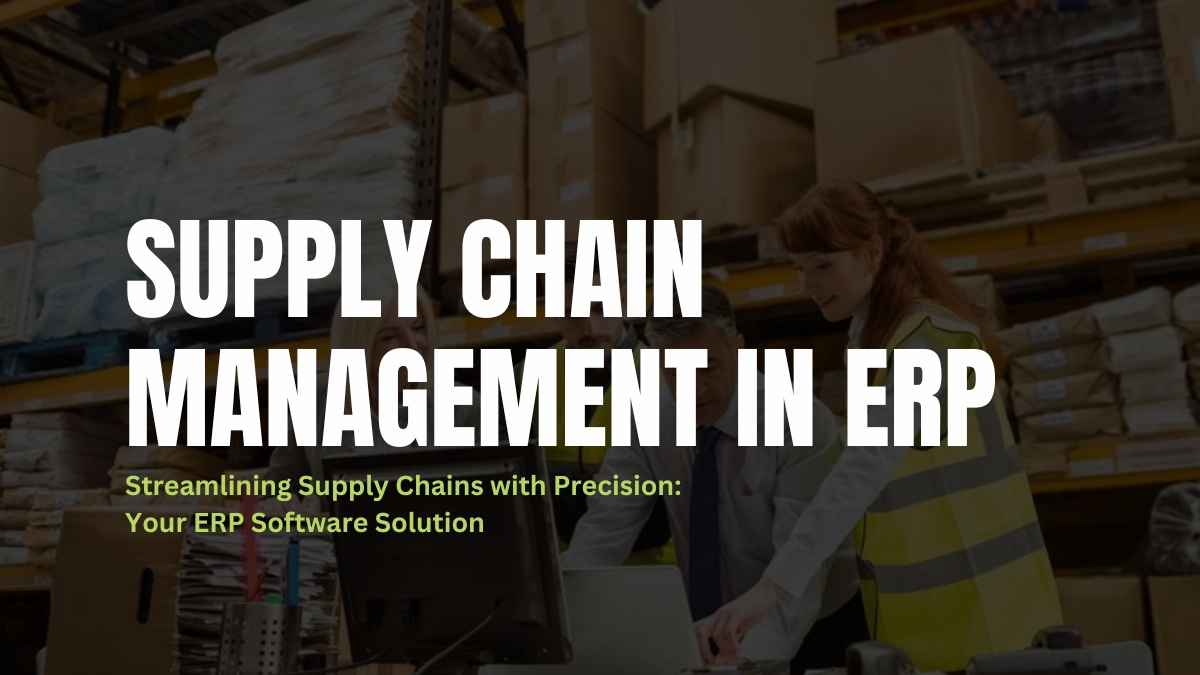In today’s fast-paced business landscape, the intricacies of managing a seamless supply chain have never been more critical. Enterprise Resource Planning Software, a dynamic solution, has revolutionized the way organizations handle their operations. At the heart of this revolution lies the often unpredictable hero: Supply Chain Management (SCM) within ERP software. In this blog, we’ll embark on a journey to explore the profound significance of SCM in ERP software, shedding light on how to streamline processes, boost productivity, and ultimately shape the success of modern businesses.
Automate to save time and money
“ERP systems integrate various supply chain functions, such as inventory management, procurement, production planning, and order fulfillment. This integration minimizes manual data entry and reduces the chances of errors, thus saving time and money associated with rectifying mistakes.
Eliminate departmental silos
ERP systems provide a single centralized database that stores information relevant to various departments. This shared data source ensures that everyone is working with the same up-to-date information, reducing information silos.
Improved visibility into analytics and performance
ERP systems provide real-time data and insights into various aspects of the supply chain, including inventory levels, production schedules, and order status.
Difference between SCM and ERP
SCM focuses on the entire process of planning, sourcing, making, delivering, and returning products or services. It deals with the management of the entire supply chain. ERP helps in managing various core business processes, including finance, HR, procurement, production, and inventory.
Workflow Automation
ERP systems integrate data from various departments into a single database. This automation reduces manual data entry, minimizes errors, and ensures that information flows seamlessly across the supply chain. ERP systems automate inventory tracking, helping organizations maintain optimal stock levels. They can trigger reorder points, generate purchase orders, and track stock movements in real-time, reducing stockouts and overstock situations
Risk management
ERP systems can help in identifying and mitigating supply chain risks by providing early warnings about potential disruptions, such as supplier issues or transportation delays.
Supplier Collaboration
ERP systems facilitate communication with suppliers, allowing for better collaboration. This includes electronic data interchange for automated order processing and real-time updates on supplier performance.
Optimized Inventory
ERP systems provide a holistic approach to inventory optimization in supply chain management by offering real-time visibility, demand forecasting, and analytics. ERP systems often integrate with other modules like finance and sales, ensuring that inventory decisions are aligned with financial goals and customer demands.
In summary, ERP systems play a pivotal role in automating and optimizing various aspects of supply chain management. From streamlining operations to improving data visibility and facilitating collaboration, ERP empowers businesses to navigate the complexities of modern supply chains more effectively. The seamless integration and management of Supply Chain Management (SCM) within ERP software are key to achieving these benefits.
Ready to unlock the full potential of ERP and Supply Chain Management? Contact us today to explore how our Quarto ERP software solution can transform your business.





